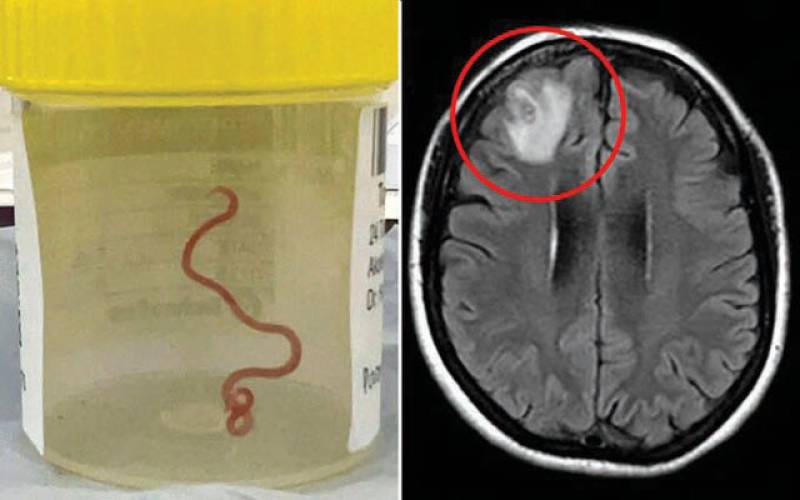Molecular tests confirmed it was Ophidascaris robertsi, a roundworm usually found in pythons, according to a press release from the Australian National University and the Canberra Hospital.
Canberra: Doctors removed a 3-inch-long live parasitic worm from an Australian woman’s brain, the world’s first discovery of a live worm inside a human brain, according to CNN. An ANI report in The Tribune, Chandigarh, says
Dr Haripriya Bandi, a neurosurgeon, said, “I have come across worms only while using my not-so-good gardening skills. I find them terrifying and this is not something I deal with at all.”
The neurosurgeon, who performed brain surgery on a 64-year-old Australian woman, said she was not expecting to pull out a live 8-centimetre-(3-inch)-long parasitic roundworm that wriggled between her forceps.
The finding triggered curiosity in everyone to find out what exactly the parasite was, Canberra Hospital infectious disease expert Sanjaya Senanayake told CNN.
A hospital lab colleague was able to contact an animal parasitology expert at a government scientific research agency and found their unexpected answer.
Molecular tests confirmed it was Ophidascaris robertsi, a roundworm usually found in pythons, according to a press release from the Australian National University and the Canberra Hospital.
To our knowledge, this is also the first case to involve the brain of any mammalian species, human or otherwise, said Senanayake, who is also a professor at Australian National University.
According to researchers, the patient lived near a lake area inhabited by carpet pythons in south- eastern New South Wales. Although she did not have direct contact with the reptiles, it’s likely she caught the roundworm after foraging Warrigal greens, a native leafy vegetable, which she cooked and ate.
The doctors and scientists theorised that a carpet python might have spread the parasite via its faeces into the greens, which the patient then touched and cross-contaminated with food or other cooking utensils.
Initially the Australian woman was admitted to a local hospital in late January 2021 after suffering three weeks of abdominal pain and diarrhoea, followed by a constant dry cough, fever and night sweat.
Her symptoms later developed into forgetfulness and depression and she was sent to a hospital in the Australian capital, where an MRI scan revealed something unusual in the right frontal lobe of her brain.
*****************************************************
Readers
These are extraordinary times. All of us have to rely on high-impact, trustworthy journalism. And this is especially true of the Indian Diaspora. Members of the Indian community overseas cannot be fed with inaccurate news.
Pravasi Samwad is a venture that has no shareholders. It is the result of an impassioned initiative of a handful of Indian journalists spread around the world. We have taken the small step forward with the pledge to provide news with accuracy, free from political and commercial influence. Our aim is to keep you, our readers, informed about developments at ‘home’ and across the world that affect you.
Please help us to keep our journalism independent and free.
In these difficult times, to run a news website requires finances. While every contribution, big or small, will makes a difference, we request our readers to put us in touch with advertisers worldwide. It will be a great help.
For more information: pravasisamwad00@gmail.com











